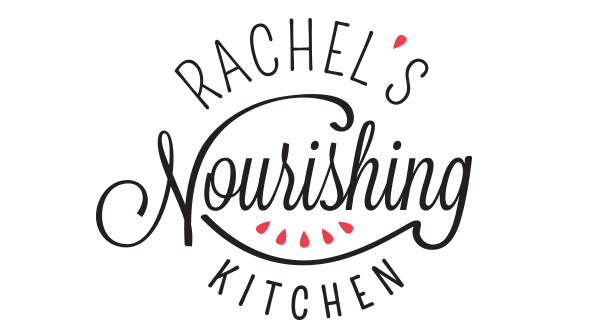Every day, we make choices.
And so many of us struggle with our choices around eating.
It’s a challenge to consistently eat a nourishing diet…or to even keep track of what that means amidst the newest diet or health food fads that flood the media.
It’s hard to know exactly what and how we “should” eat.
People often ask me for advice related to these key questions. Here’s what I’ve learned and found to be most helpful and transformative along my journey of health and healing.
It isn’t about eating “good” foods or “bad” foods.
Nor is it about “cheat” days or “cheat” meals.
And no, we’re not talking about “being on a diet.”
We glorify some foods and villainize others for the sake of “being good” or to have an excuse for those times when we want to “cheat.”
What if we started thinking and talking about food differently?
What if, instead of thinking of food in terms of good/bad, healthy/unhealthy, following the rules/cheating, we began to think of it as real/fake? Living/dead? Nutrient-rich/nutrient-depleting? Anti-inflammatory/inflammatory? Detoxifying/toxic? Healing/harmful?
At this point in my journey, this perspective shift means a commitment to being a “qualitarian” – fueling my body with the freshest, most nourishing, nutrient-rich, delicious food available to me, so that I have the energy and health to do the things I want to do and am called to do with my life. Having this kind of vitality also means being able to spend lots of quality time with my friends and family.
When I eat, I don’t think of the food as “good” or “bad” or ask myself if I’m “cheating.” Those words stir up feelings of guilt and shame, which don’t make us feel particularly good and aren’t the best motivators for lasting changes.
Our body actually processes food differently when we eat it in a state of guilt and shame vs. one of calmness and acceptance. If we’re going to eat it, we might as well enjoy it.
I know that Krause’s dark chocolate caramels aren’t exactly loaded with health-promoting nutrients, but they taste delicious, and sometimes I want one. When I do, I eat it and enjoy it. If I eat it, I own it. I wasn’t “bad.” I didn’t “cheat.”
I simply made a choice.
Eating without guilt is very freeing. It actually means we can enjoy food more.
And food was meant to be enjoyed.
Instead of “being bad” or “cheating,” what if we started asking ourselves questions like these before making food choices?
- Is it real? (Hint: If it has 35 ingredients and a third-grader couldn’t pronounce most of them, then it’s not a real, whole food. Michael Pollan has written an awesome book that distinguishes between “real” food vs. what he calls “edible food-like substances.” Following the guidelines in his book provides a helpful starting point for determining what’s real and what’s not.)
- Is/was it living? (Hint: The life in food gives us life. If we’re constantly eating highly processed foods created in factories and industrial plants and not including adequate amounts of naturally growing, living, plant-based foods in our diet, then we’re very likely to be missing out on how alive we can feel when we are well nourished.)
- Is it nutrient-rich? (Hint: High quality, fresh, organic (if possible) foods are full of vitamins, minerals, antioxidants, and phytochemicals that help our bodies function at their best, resist and fight disease, heal and stay energized and vibrant. Not only are highly processed and refined foods nutrient-deficient, but they also pull nutrients from our bodies as we process them; they deal a double blow.)
- Is it anti-inflammatory? (Hint: Inflammation is one of the main reasons we are getting and staying sick and carrying excess weight that won’t seem to budge. Inflamed tissues hold on to weight and are the breeding ground for disease and sickness. When we eat anti-inflammatory foods, we can reduce inflammation and impact weight and disease risk).
- Is it detoxifying? (Hint: Most of the food and drinks in our modern diet are literally toxic to our bodies, causing us to get sick, stay sick, and hold on to weight. Low quality, highly processed, refined, and sugary foods loaded with chemicals like pesticides, hormones, preservatives and antibiotics keep our bodies in a toxic state. Eating foods that naturally detoxify the body helps to keep us well.)
- Is it healing? (Hint: If the answer to the previous 5 questions is “no,” then there’s a good chance that what we’re eating/drinking may be harmful to our body and our health. This can vary from person to person. For many people, myself included, dairy products are harmful – their consumption is tied to weight gain, inflammation, ear/nose/throat infections and illnesses, bronchitis, congestion, allergies, skin issues, etc. For others, gluten (the sticky protein found in wheat, barley, rye, and a few other grains) is inflammatory and makes them very ill or keeps them from feeling their best. Curious if you might have a food allergy (we’re not just talking peanuts!)? Check out this post.)
If we start to shift the ways we think and talk about food, perhaps we can start making some lasting changes around what we’re eating without “dieting” and without guilt.
When foods are no longer “bad” foods or “cheat” foods, it diminishes their allure, and we don’t want to eat them as much. We’re no longer rebelling against ourselves but are supporting ourselves to be well.
Imagine the health, energy, and physical well-being we could have if we focused on eating real, living, nutrient-rich, anti-inflammatory, detoxifying, healing foods!
The next time you eat, regardless of what it is, remind yourself, “it’s a choice, not a cheat“…and enjoy it!


